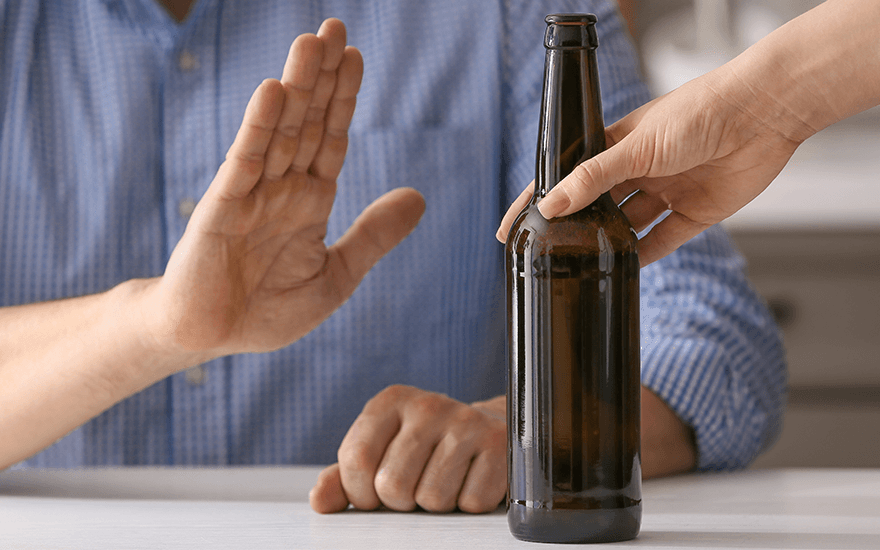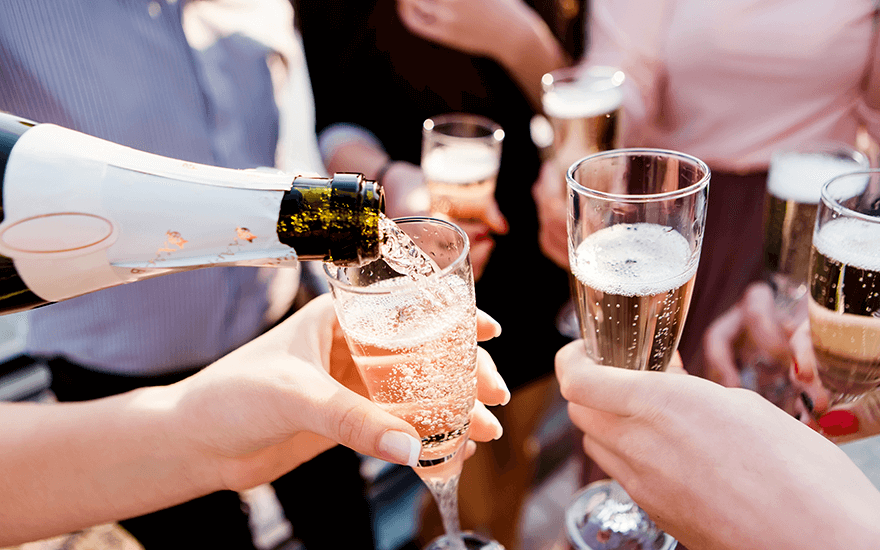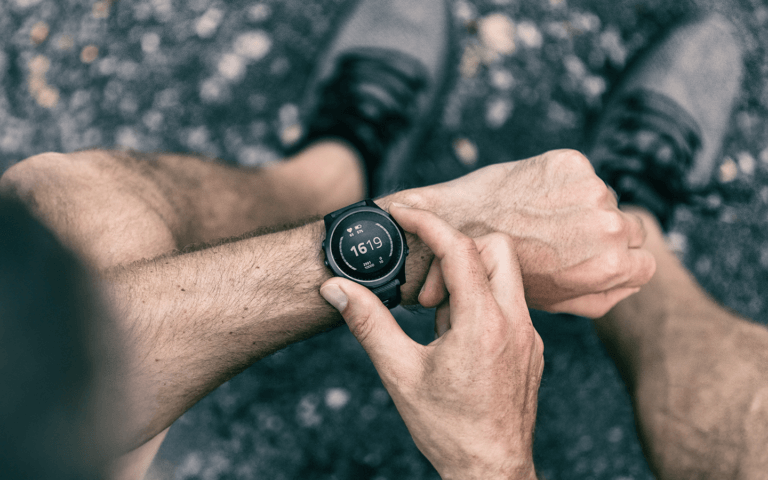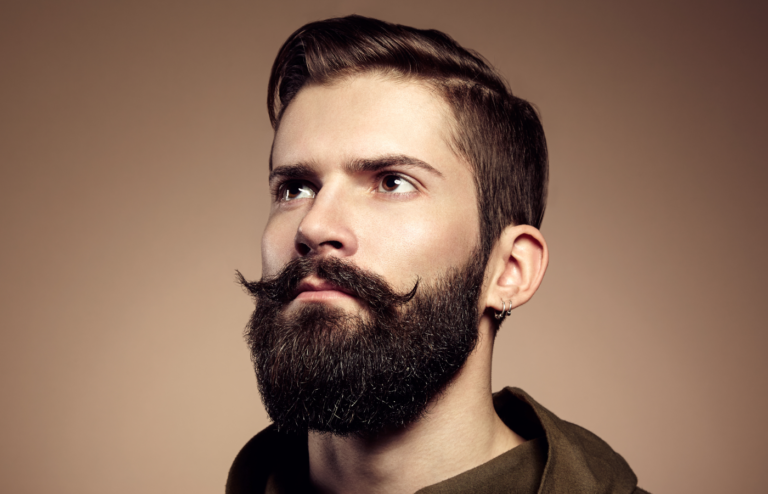GenZ is a peculiar bunch. GenZ drinking habits are different to those of previous generations.
Those born between 1997 and 2012 are quickly becoming the black sheep of the generationally widespread society, with their pioneering and unwavering stances on the world starting to ingrain into everyday culture.
Work-wise, they want it all. Work-life balance, fair pay and value alignment. It’s their way or no way, with many prepared to walk away from the corporate machine rat race in favor of a role that leaves them fulfilled and more holistically aligned.
Flexibility and the need to not be defined by a job are imperative, but GenZ’s stance on health and wellbeing is proving to be the most significant cultural shake-up in decades.
GenZ is putting down the bottle. Welcome to the sober curious generation, a shift contributing to a healthier and financially secure future for those daring to eradicate a staple of socializing since the second half of the 20th Century.
Studies, research, and a delve into social media accounts sprinkled with images of hiking, kombucha and words of motivation reveal GenZ are drinking less alcohol than the generations before it.
Berenberg Research found that respondents in their teens and early 20s drank over 20% less per capita than millennials did at the same age. The report also discovered that 64% of Gen Z respondents expected to drink alcohol less frequently when they grew older than today’s older generations do.
A University of Michigan study found that the share of college-age adults abstaining from alcohol has grown from 20 to 28 percent over the last two decades, while the U.K.’s most important recent study of drinking behaviors in 2019 found that 16-to-25-year-olds were the most likely to be teetotal, with 26% not drinking, compared to the least likely generation (55-to-74-year-olds), 15% of whom didn’t drink.
But the question on the lips of those regularly coating their labium superius oris and labium inferius oris with booze is why?
Many factors are at play here, all of which have collided together to concoct the perfect storm, with the physical, mental, emotional, and financial implications of leading a life planned around drinking now a thing of the past.
Muscle and Health pours a nonalcoholic beverage and inspects why GenZ is becoming sober and curious.
What is a sober curious lifestyle?
Young people are drinking less; why and what are they doing instead? Is our drinking culture shifting?
“Young people know that booze isn’t good for them — it’s addictive, it’s high in calories, and it causes several health problems, not to mention accidents“, Hilary Sheinbaun, author of “The Dry Challenge: How to Lose the Booze for Dry January, Sober October, and Any Other Alcohol-Free Month“, told Muscle and Health.
“Recent studies have shown that alcohol has no health benefits. Previous generations were told that a certain amount of red wine could benefit you, but I digress.”
She firmly believes that drinking culture is shifting, spearheaded by a more health-savvy generation flying the flag for the more sober curious movement.
The term “sober curious” was coined by the author Ruby Warrington, who wrote a book on the topic in 2018. Since then, more people have started embracing the idea of mindful drinking.

The movement allows people to be more mindful of their drinking habits and decide what they want their relationship with alcohol to look like.
But sober curiosity doesn’t work for everyone, especially those with alcohol use disorder.
Unlike sobriety, being sober and curious can include drinking occasionally, carefully picking moments, and evaluating the potential effects of drinking too much on your mood and other aspects of your life.
Adopting a sober curious lifestyle mindset encourages individuals to explore alternative ways of socializing and finding enjoyment, promoting a more balanced and fulfilling lifestyle.
Social media driving the sober curious movement
Many argue that advancements in technology have made us more anxious and more aware than ever before, as well as ironically disconnecting us from each other.
While boasting evident positive factors – the ability to share personal stories and experiences about going sober for one – social media can also contribute to creating unnatural and unattainable scenarios.
This can have a knock-on effect on those struggling mentally and using alcohol as a coping mechanism, as was the case for Charlotte, who runs her travel blog, Sacred Footprints.
“Before I went sober, I was considered a wild child drinking every weekend and trying to escape my mental health issues through drinking.
“My decision to go sober was when I hit rock bottom mentally just after Covid, and was feeling the pressure of social media and our generation to be more successful and look a certain way, have a particular career and earn an immense amount of money.
“I didn’t know who I was anymore because I was putting on this mask behind alcohol and social media, giving this false facade of being a happy, confident young woman. The person that people met on a night out was not the person who would wake up in the morning with anxiety and depression and spend most of the week in tears, crying about how they felt like a failure and lacked self-worth.“
A study conducted by University College London in 2021 discovered that heavier social media use is associated with more frequent alcohol consumption among young people in the U.K. and found that 30% of respondents aged 16-19 drank at least weekly, also revealing a higher risk of binge drinking for those in this age group who used social media for four hours or more per day compared to those with less than an hours’ use per day.
But it’s not all doom and gloom. Young people have greater access to varied viewpoints and information and are more connected than ever. They can learn about the potential repercussions of binge drinking, participate in conversations about alcohol consumption in moderation, and be inspired by positive role models who advocate healthier lifestyles.
The #SoberTok trend has attracted 1.4 billion viewers on TikTok, with millions documenting their journeys to sobriety, with contrasting photos from zero days without booze to significant milestones further down the line showcasing noticeable changes.

TikTok’s short-form content is the perfect platform for hard-hitting, science-backed facts to be consumed. Revealing personal accounts allow users to relate and understand their habits with others, and it’s become a place to learn. GenZ’s eyes have been opened.
Those who have experienced the negative side of alcohol abuse – and those that haven’t – are learning about the risks through their education and over the internet, with the limitless levels of exposure contributing to the decline in drinking.
Whether searching the internet, talking with family and friends, or following social media communities like #SoberTok, the new generation is constantly surrounded by messages about the risks of alcohol consumption.
More aware and more in control
A refined focus on health and well-being has catapulted to the forefront of modern culture in recent years, a stark contrast to older generations who placed alcohol at the center of their social universe.
It’s important to remember that the concept of becoming sober or sober curious is a new thing. In many ways, our culture revolves around alcohol and has done for decades. From tailgating at sporting events and celebrating weddings to attending happy hours and networking events, we celebrate many of life’s greatest events with champagne, wine, beer, and cocktails.
Alcohol has been the constant for generations, the glue that ties people and socializing together; however, liquid courage’s dangers and side effects were only fully broadcast in the late 00s.
Generation X – those whose partying days were during the height of the 90s – had no such luxury. The youth were brainwashed into thinking that shame and regret of post-night antics were part and parcel of being young and having a good time. The term “binge drinking” wasn’t yet coined, but that’s what everyone did in the name of fun.
If a friend revealed they would start meditating and cut down on their boozing, they would have likely been bewildered and asked if they were joining a cult. Alcohol was social currency, a place where lifelong friends and minute-long acquaintances were formed.
Google research found that 41% of Gen Z tend to link drinking and alcohol with “vulnerability,” “anxiety,” and “abuse” from their findings on the subject in 2019. Drinking to access is no longer as fun for many as it was for those in the 90s and early 00s.
A study released in 2007 found that there was “an increased heavy drinking per session by some young people in the U.K. from the early 1990s, with a perceived growing public tolerance of drunkenness by many more. In recent years there is evidence that this heavy sessional consumption by youth and young adults is starting to level off. However, there are also growing numbers of occasional and abstainers, suggesting a polarization of drinking patterns amongst young people since 2000.”
The lauded loss of control and blackout-welcoming drinking patterns of pub and club-goers across both decades also came with far less risk. Before an era played out on screens, you could consume ten shots, throw them all backup, and then carry on as if nothing happened.
Now, a video of the whole scene was uploaded to Snapchat and Instagram before the cleaner appeared.
It’s no surprise that according to the same Google research, 49% of Gen Z say their online image is always at the back of their mind when they socialize and drink.
It’s no wonder that 76% feel it’s essential to be in control of all aspects of their life at all times.
The shift away from alcohol stems partly from a heightened awareness of the risks of drinking, from poor decision-making to addiction to adverse health impacts.
Young people are learning that alcohol is toxic to humans and that, over time, drinking alcohol can lead to numerous health problems like high blood pressure, heart disease, stroke, liver disease, alcohol addiction and memory problems.
According to the Centers for Disease Control and Prevention, this can cause at least eight cancers.
Alcohol has such harmful effects on the human body the World Health Organization announced earlier this year that there is no level of safe alcohol consumption.
Some young people have gained awareness of the risks associated with alcohol through personal experience. They’ve watched friends or family encounter them or lived through it themselves.
Richard, who now works in health care, was 18 when he stopped swimming and began drinking. At college, he went down the same path as the majority; the socially accepted course: booze, takeaways, ready meals, lack of sleep.
“I got a great job after uni, juggling a demanding work schedule and part-time studies for an MSc degree. Unfortunately, this left little time for exercise, and my diet still revolved around quick, unhealthy options and booze. My weight shot up to 112 kg.”
After meeting his future wife and having a child, Richard began implementing a healthier lifestyle with more exercise and a strict diet. Yet, the weight and a general sense of sluggishness failed to shift. Eventually, he realized the constant which was holding him back was alcohol.
In late 2021, fed up with feeling sluggish, his appearance, acting irritable with his kids, and wanting to be a better role model, he drank his last beer on the evening of December 27th. As of June 2023, that remains his last beer.
In terms of the broader societal picture, Richard told Muscle and Health that he thinks it’s “really cool how things are changing with the younger crowd these days. A lot of them are saying “no thanks” to the booze.
“They’re taking their health and wellness lifestyle pretty seriously, and it’s not just about staying fit; they’re also looking out for their mental health – another area impacted by alcohol. They’ve connected the dots between drinking, weight and lifestyle, and things like feeling anxious or low much earlier than I did.
There’s less pressure to have a beer in your hand to fit in. I’ve experienced this, and rather than have people look down on me, I get questioned by people with genuine interest and know that deep down in them, they’re thinking the same thing.
“But while it’s great to see this shift, we’ve got to remember that not everyone’s on board. Alcohol is still a big problem for some people out there, both young and old.“
He now prioritizes his health, running his website – The Good Gut Guy – which centres around his passion for fermenting. Richard makes his own kombucha and apple cider vinegar – great alternatives to alcohol – providing him with a drink to ‘bridge’ work and home time.
He quit drinking, adopted a keto diet, returned to the gym, and ran a sub-60-minute 10k.
Funding wholesome habits
Unwinding and escaping the realities of the stresses that plague our everyday lives has undergone a dramatic transformation. Experts say much of this is linked to the challenges that they perceive await them in the future and the way they want to lead their lives.
An always-on approach to technology and content consumption means that unwinding often takes the form of withdrawal or catching a break from the extroversion of social media.
Modern youth have access to greater leisure pursuits and socializing options than they did in the past, which excludes drinking. They are looking into various ways to interact with people, such as taking up hobbies, attending events, playing sports, or engaging in creative activities.
Without alcohol, these alternative activities offer chances for deep connection and enjoyment. The idea of a ‘good night out’ or even a good time’ is changing. You’re not likelier to find friends hanging out sipping hot chocolate around a campfire on a Friday night than in a bar getting obliterated – as was the custom in the 90s and 00s.
With more options than ever, more and more social lives are centred on coffee shops, restaurants, sports games and nights in with friends, sporadically littered with random activities that don’t require drinking and offer a unique dopamine hit – without the debilitating hangover.
Gen Zers tend to be homebodies thanks to growing up with a plethora of food delivery apps, streaming platforms and other on-demand services that can be accessed from home, with only 58 per cent of Gen Z considering going out to bars and restaurants as “an important part” of how they socialize.
This is compared to 65 per cent of millennials, according to 2021 survey findings from Technomic, a food industry research and analytic company.
Bars and restaurants, therefore, have been forced to reshape the landscape to lure in those doing everything they can to abstain, offering only high-quality sources of experiences that enrich lives, not damage them.
Equally, the rapid expansion of the nonalcoholic drink sector and its innovation has sent a message to sober and sober-curious consumers that bars have something for everyone. It won’t be long until we see sober bars dedicated to serving nonalcoholic drinks, promoting health risks and self-care, and offering advice to those potentially experiencing withdrawal symptoms.
“It’s impossible to avoid commercials these days for Heineken 0.0 and menus that now include nonalcoholic cocktails. Businesses large and small are doing it to make money — these efforts would not last if patrons weren’t asking for or ordering these items“, says Sheinbaun.
The no- and low-alcohol category has grown consistently, and the leading drinks market analysis firm IWSR predicts that, by 2024, the total volume consumption will grow by over 31% across Australia, Brazil, Canada, France, Germany, Japan, South Africa, Spain, the U.K. and the U.S.
While the need to stimulate the brain in other ways is why some turn their back on alcohol, others can’t fund the habit. The cost of living crisis remains the biggest worry for GenZ, according to a study conducted by Deloitte.
According to the U.S. Bureau of Labor Statistics, prices for alcoholic beverages are 13.71% higher in 2023 versus 2018 – a $1.37 difference in value and an average inflation rate of 2.60% per year.
Christopher, who is part of GenZ, cites the financial restraints of everyday living and the costly nature of drinking alcohol as the main reasons for becoming sober and curious.
“As a GenZ with many friends who drink, I don’t necessarily think there’s a shift to being sober. Rather I think we drink less; many of us can’t afford it for a start”, he shared with Muscle and Health.
“The other reason is that we’ve been raised better than previous generations, so we are more focused on our careers, building healthy relationships, and living healthy lives.
“Many of my friends drink, but almost all of them have done “Dr January”, “Dry December”, “Sober October”, “Sober September”…you get the idea. I love a drink, but it’s too expensive to go out drinking as much as I’d like, and my friends don’t drink too often.“
With more spare time and a larger financial pot to pick from, Christopher founded his own business, Paritae, which focuses on tackling prominent issues within today’s dating world.






